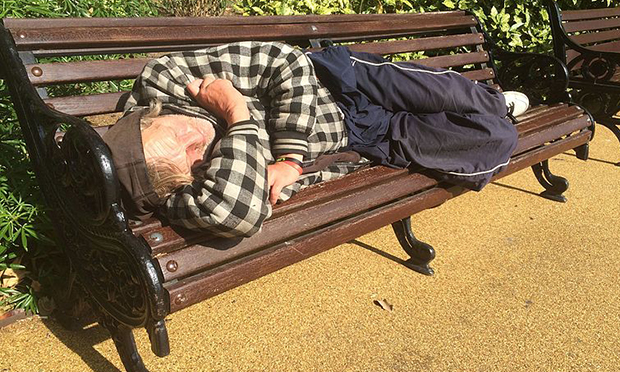Rough sleepers’ charity denies informing on EU nationals to Home Office

Crackdown: the government has toughened rules on EU migrants. Photograph: Allan Warren
Homelessness charity Thames Reach has poured scorn on claims that it passes on information about European rough sleepers to the Home Office.
An investigation by Corporate Watch accused Thames Reach, St Mungo’s and Change, Grow, Live of reporting the locations of rough sleepers to the government’s Immigration Compliance and Enforcement (ICE) teams.
Charity bosses responded by saying they focus on helping homeless EU migrants leave the country “voluntarily”, but Corporate Watch says figures obtained under the Freedom of Information Act “show that detention and enforced deportation is more common”.
A Thames Reach spokesman slammed the claims, saying: “The Corporate Watch report is not representative of our work with European Union nationals and contains misleading and factually incorrect information.
“Voluntary supported reconnections are more common than interventions by the Home Office involving detentions and administrative removals.”
Thames Reach’s London Street Rescue service supports rough sleepers across the capital, including in Hackney, and the charity also works with the Town Hall to run The Greenhouse, an advice and healthcare centre for homeless people located on Tudor Road.
The spokesman added: “In Hackney, there has not been a single joint operation with Thames Reach and the Home Office which resulted in anyone being detained.
“In some outer London boroughs in recent years, some encampments of rough sleepers from Central and Eastern Europe have sprung up. They often queue up outside builders’ warehouses to try and get casual work.”
Thames Reach says there are no such encampments in Hackney, and so it does not work with the Home Office in the borough.
EU and other European Economic Area (EEA) nationals make up nearly half of London’s rough sleepers.
“Our outreach staff offer these migrants support to help them find legal work and to find housing, though for many their accommodation options are limited and their best option is to take up the offer of a supported reconnection back to their families, their own homes or into services back home. Some refuse our offers of support,” the spokesman said.
The charity confirmed it was aware of at least one European rough sleeper in Hackney who died after refusing help.
EEA migrants have a right to reside in the UK for three months, but must find employment if they want to stay. Rough sleepers from the EEA who are in breach of government residency guidelines face the possibility of administrative removal by the Home Office.
Thames Reach said these guidelines also dictate that Home Office encounters with rough sleepers should be conducted with the local authority’s outreach service.
The charity’s spokesman added: “Where the Home Office concludes that administrative removal is necessary, Thames Reach will work with Home Office staff to encourage a voluntary reconnection as an alternative to detention and removal, and to ensure that individuals understand the process which with they are involved.”
